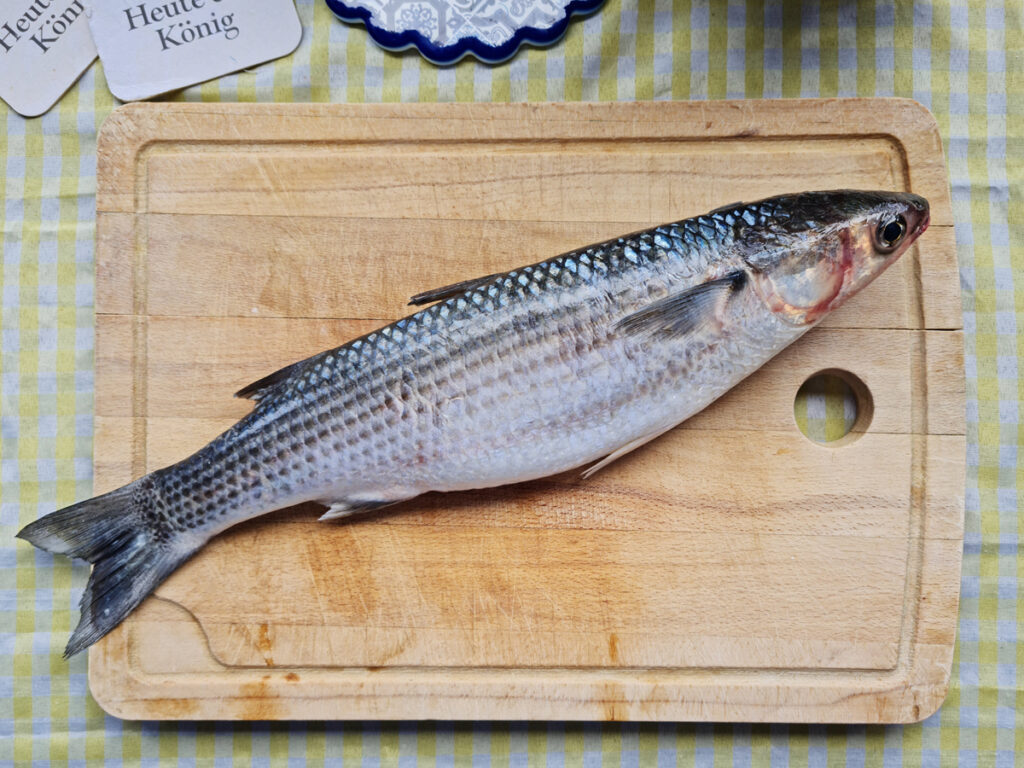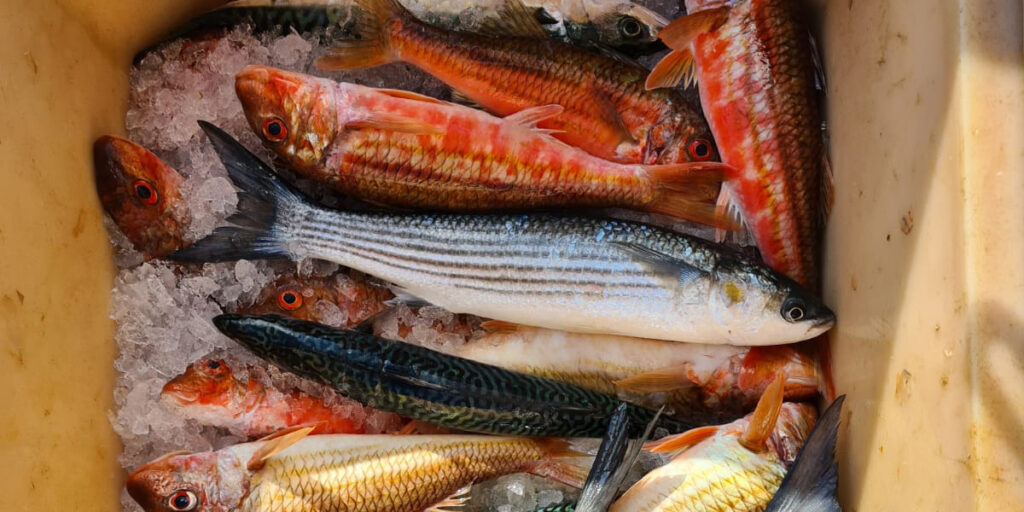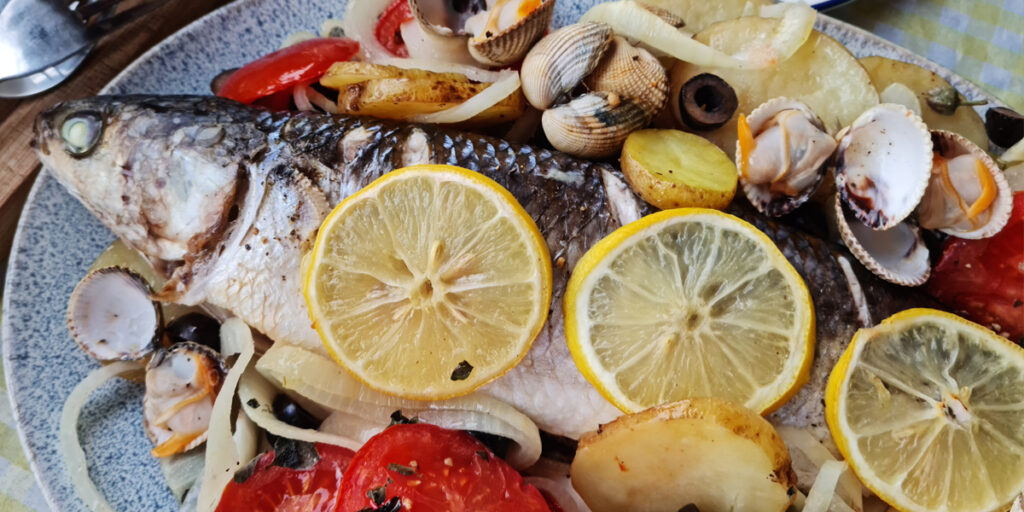
Last updated: 10 May, 2025 @ 12:11
Grey mullet is often overlooked by the home cook, perhaps owing to its reputation for being a sluggish, fatty fish – one which likes to linger in brackish water and near sewage outlets.
However, get your hands on a grey mullet caught in open water and you’re in for a pleasant surprise.
Three species of grey mullet are commonly found in UK waters: thick-lipped grey mullet, thin-lipped grey mullet and the golden grey mullet.
All three species of grey mullet typically appear on fishmongers’ slabs from late April, through to December – with the fish at their best from early to mid-summer.
The grey mullet is sometimes marketed in restaurants as silver mullet.
Thick-lipped grey mullet
The thick-lipped grey mullet is a solidly built fish which can grow to around 6.5kg.
Its bulk can be off-putting for some, especially when it comes to gutting the fish to remove its substantial intestines.
The thick-lipped grey mullet is easily identifiable by its, yes, you’ve guessed it – thick lips.
Thin-lipped grey mullet
Smaller, and arguably prettier than its thick-lipped relative, the thin-lipped grey mullet is commonly found in southern UK waters all year-round, and is believed to migrate further north as summer progresses.
The fish has noticeably thinner lips than the thick-lipped mullet, and is also smaller – growing to around 3.5kg.
We think the thin-lipped grey mullet is a better tasting fish than the larger thick-lipped grey mullet.
Golden grey mullet
This fish is a little beauty – and by far the best looking of the UK’s three grey mullet species.
Decorated by a decadent golden patch on the gill cover, this lovely fish is easy to distinguish from the thick-lipped and thin-lipped grey mullets.
The golden grey mullet also makes for the best easting, with the fish highly esteemed throughout the Mediterranean.

Grey mullet bottarga
The grey mullet is also highly sought-after in the Mediterranean region for its roe – which is salted, pressed and dried to become a delicacy known as bottarga.
Used as seasoning, or to eat just as it is, grey mullet bottarga is more desirable than tuna-sourced bottarga, and as a result, can command a high price.
How to buy grey mullet
When buying grey mullet, as with all fish, use your eyes, nose – and if possible – touch.
Warning signs of a less than fresh grey mullet include dull eyes, brown gills, a ‘blown’ belly, and a generally limp appearance.
Look for a fish with bright eyes, and a firm, stiff body – and one that smells of nothing other than the sea.
Preparing grey mullet
Preparing the larger, thick-lipped grey mullet can be a touch unpleasant owing to their large intestines.
A popular method is to remove the backbone, and then gut the fish from the top.
Check out this video tutorial on how to prepare a grey mullet from the top down.
Otherwise, de-scale the fish as normal, and then give it a good wash – both inside and out.
How to cook grey mullet
We prefer cooking our fish whole – which makes the grey mullet ideal for baking, like this recipe with garlic, lemon, chilli and coriander.
However, our favourite method of cooking grey mullet, particularly golden grey mullet, is under a hot grill.
1. Make a simple dressing of olive oil, lemon juice, crushed garlic and some chopped oregano.
2. Score the fish a few times on each side, and liberally brush on the dressing.
3. Rub more of the dressing into the cavity of the fish and place under a hot grill.
Cooking times will of course vary depending on the size of the fish – but once the flesh easily pulls away from the bone near the head of the fish then you’re pretty much there.
Drizzle with more lemon juice, cover – and allow to rest for a couple of minutes before serving.
Grilled grey mullet is great served with a tomato salad and homemade French fries (cockles make a surprisingly good accompaniment too). Easy, affordable – and delicious.

Grey mullet season
The Cornwall Good Seafood Guide is a good resource for seasonal information for the grey mullet – and a range of other species.